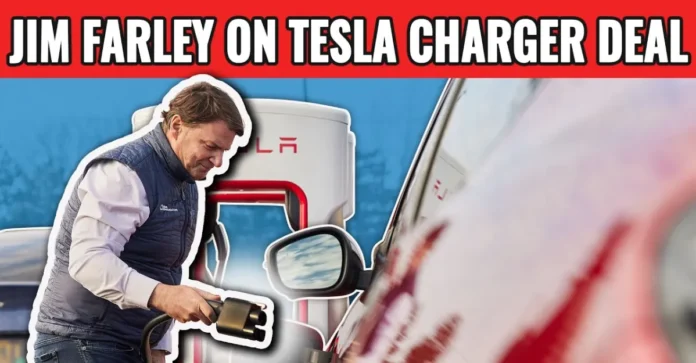Ford and Tesla’s Collaboration: A Groundbreaking Move in the EV Charging Landscape
Ford’s recent announcement of its partnership with Tesla to adopt the North American Charging Standard (NACS) plug has been making waves in the electric vehicle (EV) industry. The automaker initially faced rejection, but with perseverance and determination, Ford eventually sealed the deal, paving the way for a more unified charging experience in the American auto market.
At first, Tesla expressed disinterest in collaborating with Ford. However, after analyzing data on connectivity with most non-Tesla chargers, Tesla recognized the potential benefits of partnering with Ford. Ford’s CEO, Jim Farley, took the initiative to reach out to Tesla’s CEO, Elon Musk, to appeal to Tesla’s mission, emphasizing the potential advantages of the partnership.
“We really want to do this,” Farley said, expressing his determination to make the collaboration work. Musk eventually agreed, and both teams committed to the project, resulting in a significant milestone for both companies and the entire American auto industry.
The original agreement involved Ford EVs using Tesla chargers with an adapter starting in 2024 and switching to the NACS plug from the factory from 2025 onward. However, the collaboration quickly expanded to include other automakers, resulting in the entire American auto market shifting towards a NACS-focused future.
The partnership between Ford and Tesla marks a turning point in the EV charging landscape, with both companies leading the way in promoting a more unified charging experience for EV users. By working together, they demonstrate their commitment to innovation and sustainability, setting an example for other automakers to follow.
The collaboration between Ford and Tesla is a significant development in the EV industry, fostering a more unified charging experience for EV users and promoting a sustainable future for the industry. With their combined expertise and commitment to innovation, the two companies are well-positioned to lead the way in developing a NACS-focused future for the EV charging landscape.




